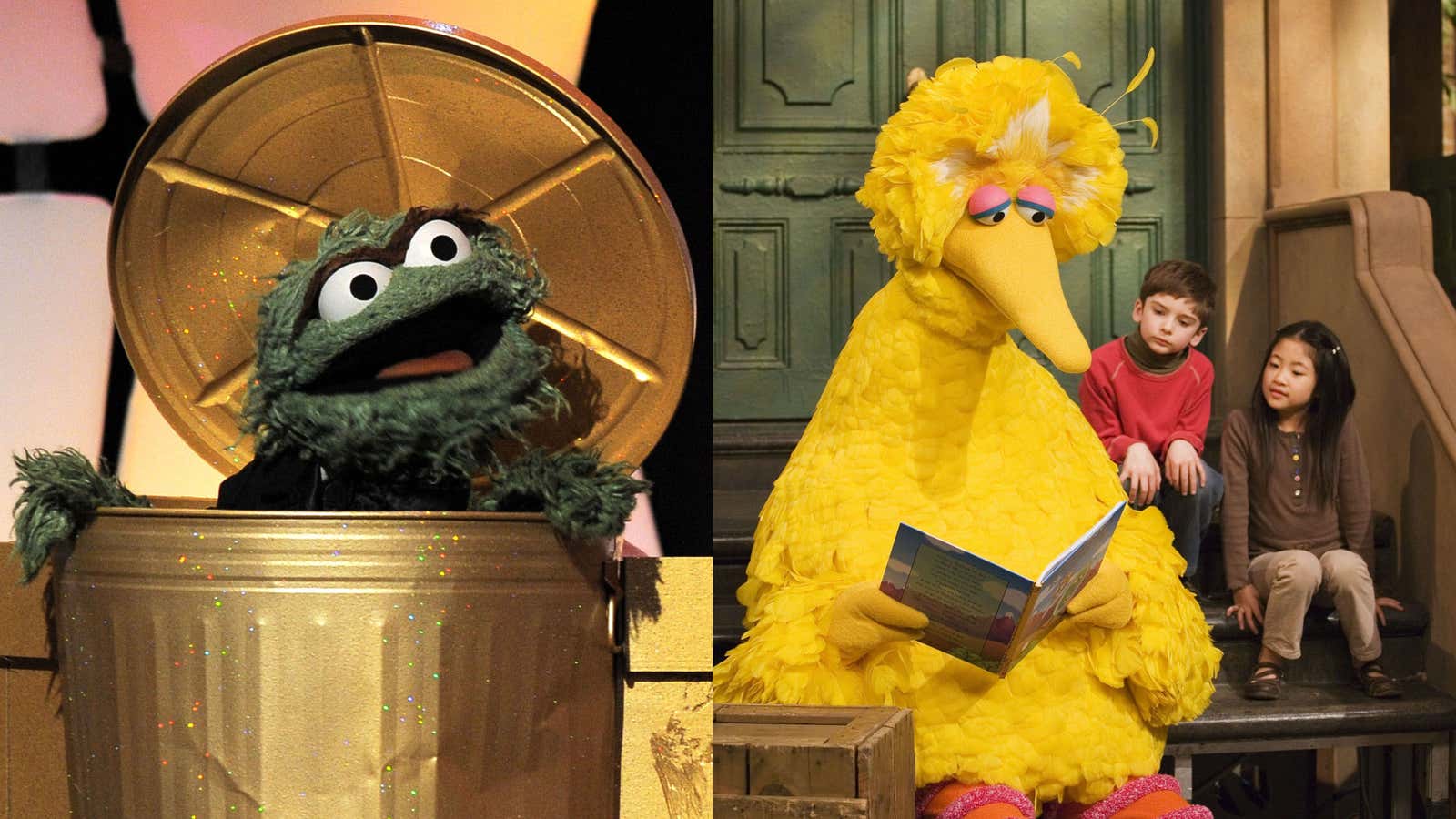Big Bird and Oscar the Grouch are the yin and yang of Sesame Street. Where Big Bird greets the world with the wide-eyed enthusiasm and curiosity of a happy child, Oscar has the world-weary air of one who has seen far too much. Both may have started the day with a smile—”That way I get it over with,” Oscar once told a crowd of children—but only Big Bird kept up the cheer.
For 49 years, puppeteer Carroll Spinney has embodied both characters on the beloved American children’s television show, Sesame Street. Today (Oct. 18), as the New York Times reports, he will do so for the last time, traveling to the Astoria, New York, studio to record some voices before retiring his fluffy suit, and trash can, for good.
In the space of a day, Spinney would switch from scowling trash-dweller to yellow-feathered avian, sometimes voicing both characters simultaneously while a stand-in operated whichever character talked less in the scene. Transitions between the two were utterly seamless. At a 2014 Sesame Street party at the New York Public Library, for instance, Oscar, Big Bird, and the man himself all chatted simultaneously with New Yorker writer Sarah Larson:
“I look better with my feathers on, too,” he said, as Big Bird.
“Yeah, you look like an idiot,” Oscar said, frowning.
“Oscar’s never liked me,” Spinney said.
That he could make these transformations so easily switches reveals something important not just about Spinney’s talents as a puppeteer and performer—but about his own complexities.
As Big Bird, Spinney could revel in a certain childishness. “That’s probably why I have so much fun playing a creature who doesn’t age,” he told the Times in 1982. ”Big Bird is six years old, but he will never be seven.” Then, as Oscar, he could take the opportunity to enjoy a truly luxuriant sulk. The character, Spinney wrote in his 2003 book The Wisdom of Big Bird (and the Dark Genius of Oscar the Grouch), took pleasure in speaking his mind even when it was thoroughly inappropriate to do so. ”He generally thinks the opposite of the way I think, at least on the surface, but he gets to say exactly what he wants to say.”
Spinney would “put Oscar on” at parties and gatherings, glowering and issuing withering put-downs to himself. “What amazes me is that I don’t plan what he’s going to say in advance,” he wrote. “As soon as I hear myself say something, I know what Oscar will think about it and what he’ll say in response.”
But in a funny sort of a way, perhaps the two roles weren’t so different after all. Big Bird’s good cheer may have been relentless, but Spinney’s 1976 picture book How to Be a Grouch revealed a hidden chirpiness to Oscar himself, stemming from all that misery. In short, it’s hard to maintain a grim outlook when you’re having such a good time being a grinch:
Getting new trash makes me happy, but I don’t like being happy.
Being happy makes me miserable, and I love being miserable!
So that makes me happy—which makes me miserable!
Their most critical point of similarity appears to have come from the puppeteer himself. “[Oscar] fundamentally has got a heart of gold,” Spinney wrote. This, at least, was common to all three.
